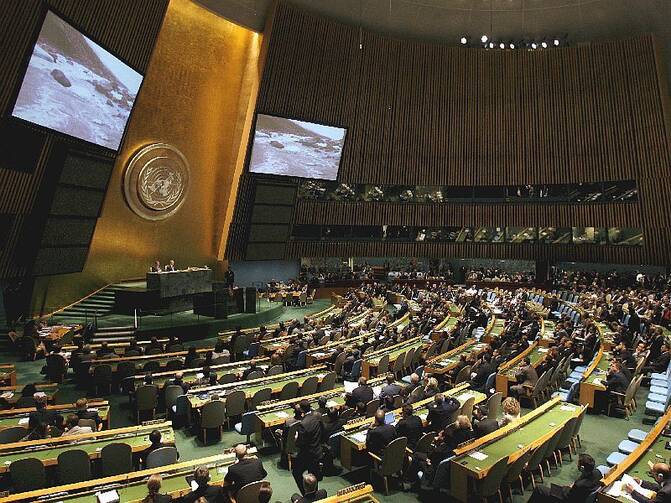This week brought news of two significant developments for the cause of peace in the world. First, the United Nations approved a Treaty on Small Arms Trade. By a vote of 154 to 3 with 23 abstentions, the United Nations General Assembly approved a treaty intended to limit the transfer weapons to potential human rights abusers and perpetrators of genocide.
A second New York Times story related growing levels of cooperation between the Obama administration and the International Criminal Court, breaking with the policy of studied indifference it, like the George W. Bush administration, had followed earlier. The latest developments include its assistance in transferring Bosco Ntangenda to the International Criminal Court and funding rewards for information leading to the arrest of people sought by the court.
For the time being, the better news may lie in U.S. cooperation with the I.C.C. While the treaty has to be adopted my member states before it goes into effect, the new U.S. policy is already underway on several fronts. In addition to the wanted rewards and dissemination of information about fugitives, the U. S. has provided protection for witnesses, DNA data and other forensic assistance to representatives of the court.
The effort to ban illicit trade in small arms goes back more than 20 years through a series of UN conferences. The Holy See has been a strong proponent of the effort. In the 1990s, the Pontifical Council for Justice and Peace issued a study on the problem that led the USCCB to launch its campaign against anti-personnel landmines.
The strongest component of the new treaty is the range of weapons it includes: tanks, armored combat vehicles, large-caliber weapons, combat aircraft, attack helicopters, warships, missiles and launchers, small arms and light weapons.
The treaty’s weaknesses, however, are many. Its chief requirement is basically a moral one for arms-exporting countries to evaluate the human rights performance of recipient countries and groups. In addition, the restrictions cover only sales and not other transfers, described by the New York Times as “gifts, loans, leases and aid.”
Many of the abstaining nations argued that the treaty should have affected all recipients, not just governments. But the drafters intended to leave room for sales to liberation movements opposing tyrannical governments.
The Holy See Permanent Observer to the United Nations, Archbishop Francis Chullikatt, welcomed the treaty, but laid out a number of routine reservations on details of the treaty on matters of gender. But the Holy See has long worked for the treaty.
The Compendium of the Social Doctrine of the Church lays out the overall Vatican position. “Appropriate measures are needed to control the production sale, importation and exportation of small arms and light weapons, armaments that facilitate many outbreaks of violence to occur. . . [They] are used for the most part in internal and regional conflicts; their ready availability increases both the risk of new conflicts and the intensity of those already underway.” (511)








